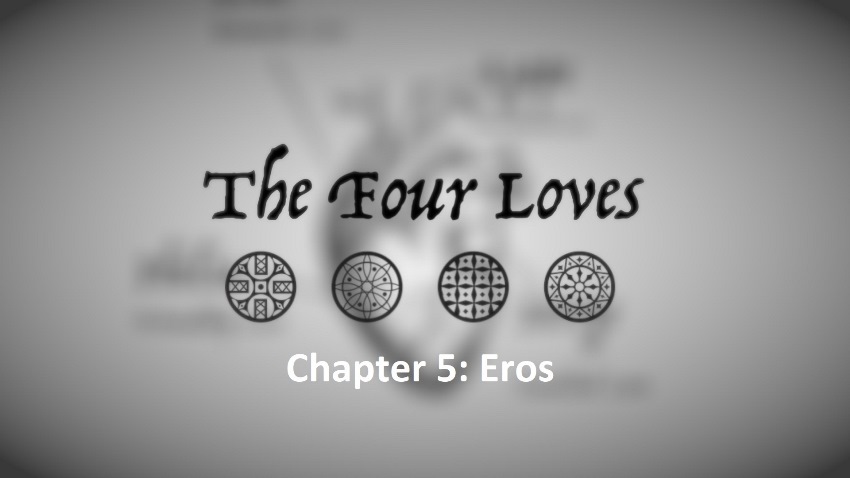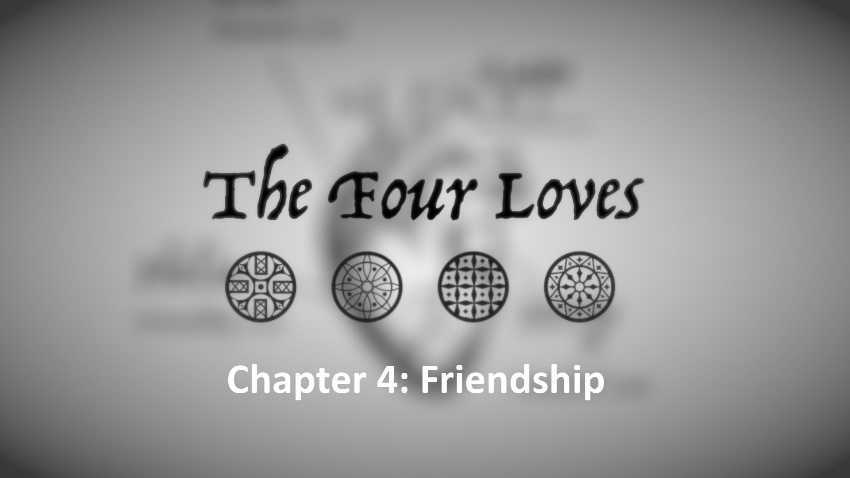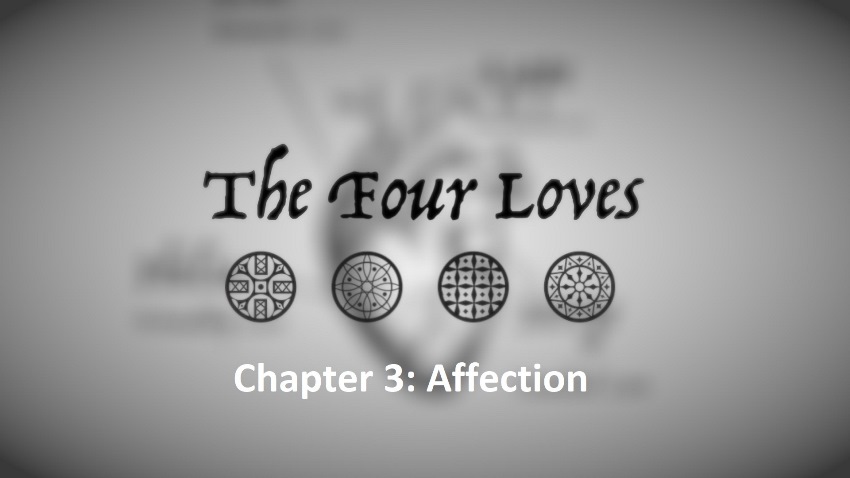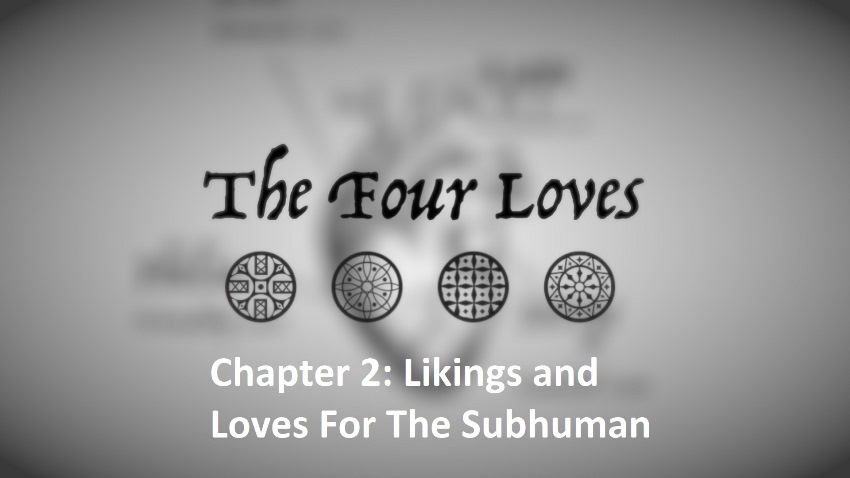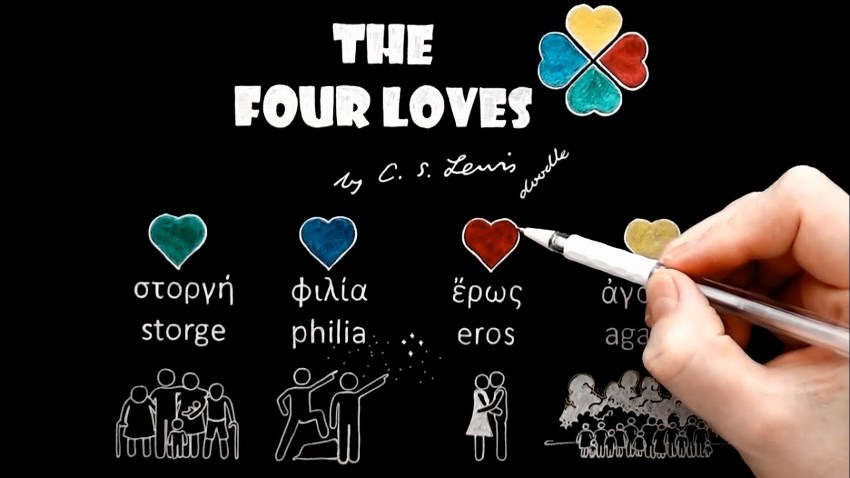The Four Loves – Chapter 6 (“Charity”)

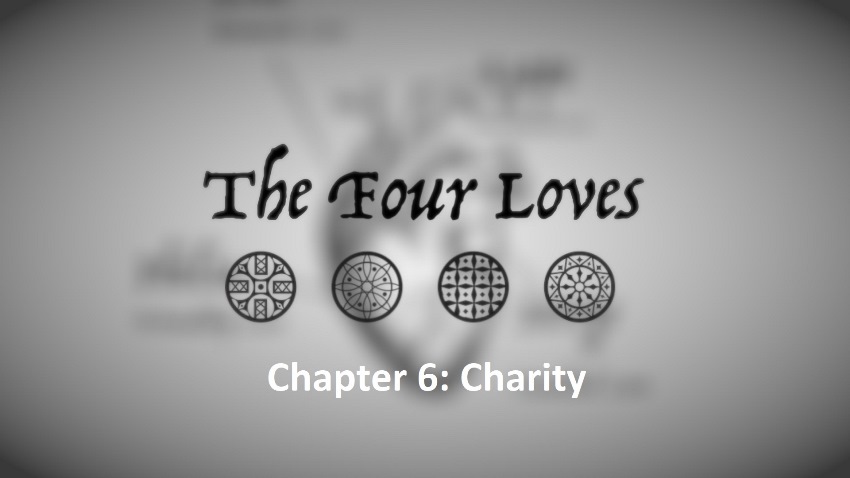
C.S. Lewis Doodle
Themes
The natural loves are not self-sufficient
The natural loves are not self-sufficient. Something else…must come to the help of the mere feeling if the feeling is to be kept sweet… It is no disparagement to a garden to say that it will not fence and weed itself, nor prune its own fruit trees, nor roll and cut its own lawns.
Natural loves as rivals to God
There were two reasons for my delay… [The] older theologians were always saying very loudly that (natural) love is likely to be a great deal too much. The danger of loving our fellow creatures too little was less present to their minds than that of loving them idolatrously. In every wife, mother, child and friend they saw a possible rival to God. So of course does Our Lord
…For most of us the true rivalry lies between the self and the human Other, not yet between the human Other and God. It is dangerous to press upon a man the duty of getting beyond earthly love when his real difficulty lies in getting so far.
But to have stressed the rivalry earlier in this book would have been premature in another way also… The loves prove that they are unworthy to take the place of God by the fact that they cannot even remain themselves and do what they promise to do without God’s help… Even for their own sakes the loves must submit to be second things if they are to remain the things they want to be.
Disagreeing with St. Augustine
…[For the] older theologians… the danger of loving our fellow creatures too little was less present to their minds than that of loving them idolatrously. In every wife, mother, child and friend they saw a possible rival to God. So of course does Our Lord.
In words which can still bring tears to the eyes, St. Augustine describes the desolation in which the death of his friend Nebridius plunged him. Then he draws a moral. This is what comes, he says, of giving one’s heart to anything but God. All human beings pass away. Do not let your happiness depend on something you may lose…. Of course this is excellent sense… [However,] if I am sure of anything I am sure that [Jesus’] teaching was never meant to confirm my congenital preference for safe investments and limited liabilities… Would you choose a wife or a Friend – if it comes to that, would you choose a dog in this spirit? One must be outside the world of love, of all loves, before one thus calculates
We follow One who wept over Jerusalem and at the grave of Lazarus, and, loving all, yet had one disciple whom, in a special sense, he “loved”… Even if it were granted that insurances against heartbreak were our highest wisdom, does God Himself offer them? Apparently not. Christ comes at last to say “Why hast thou forsaken me?”
Read more

